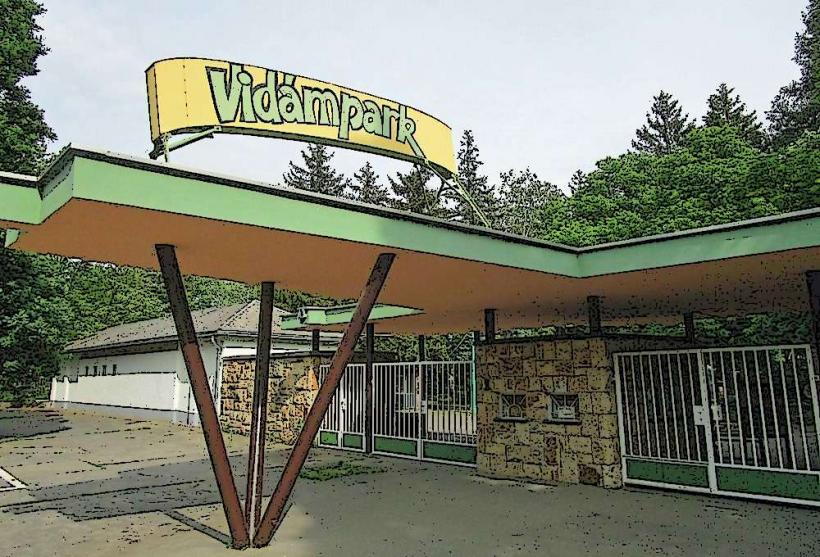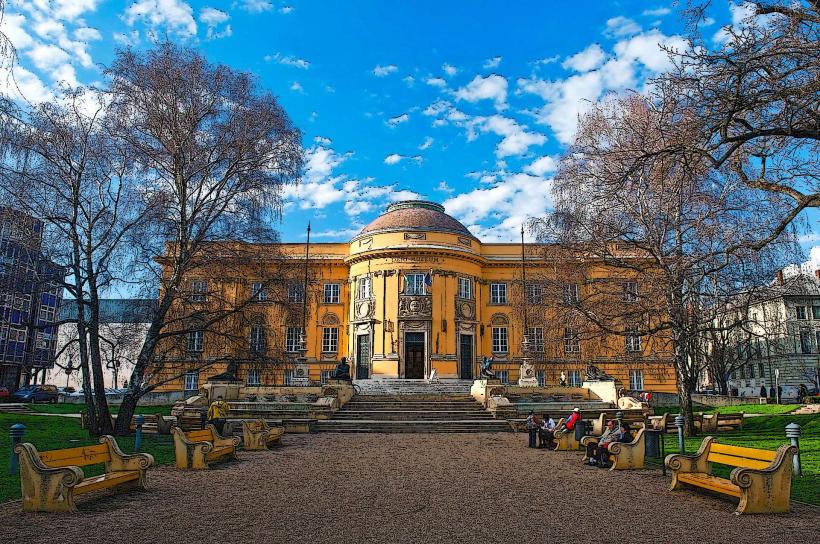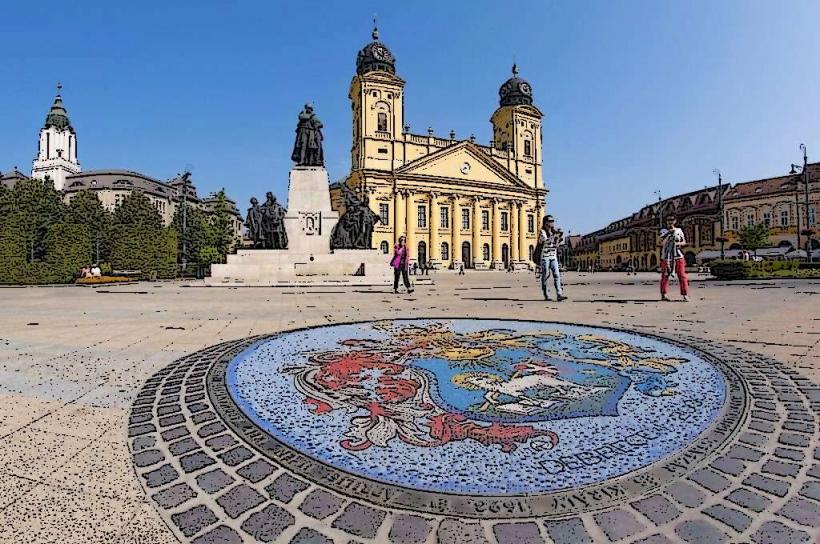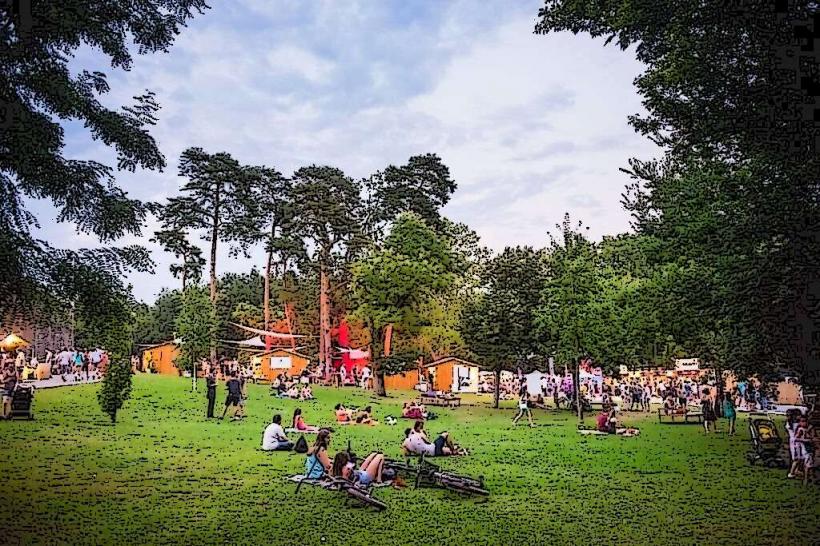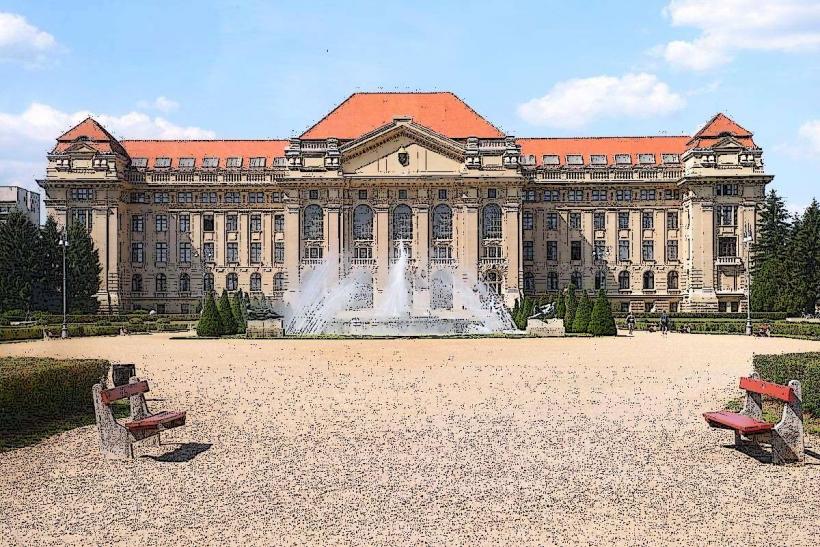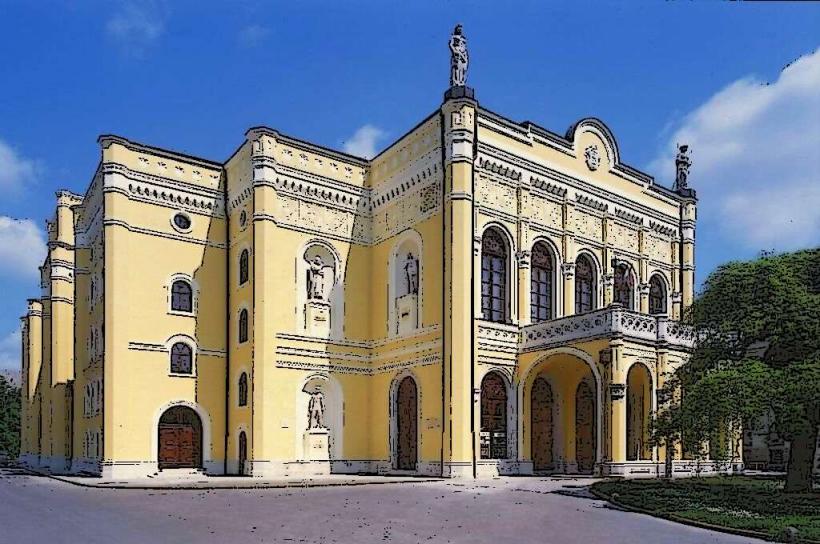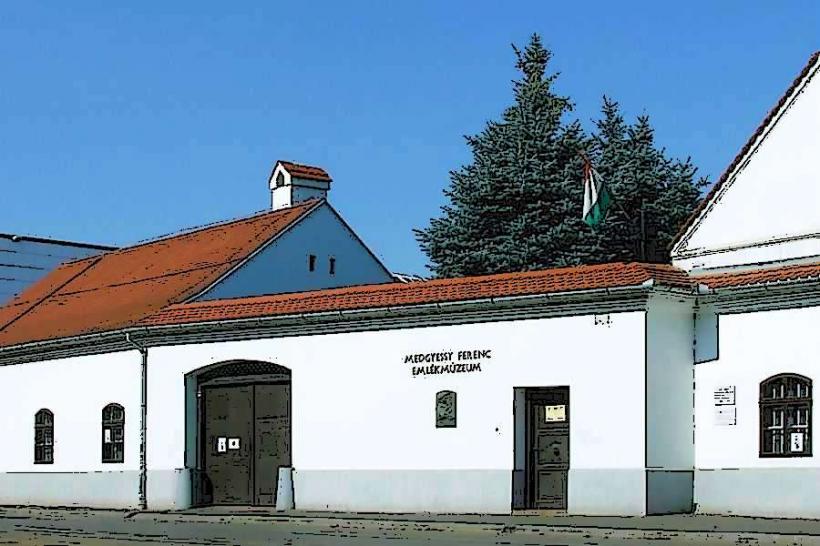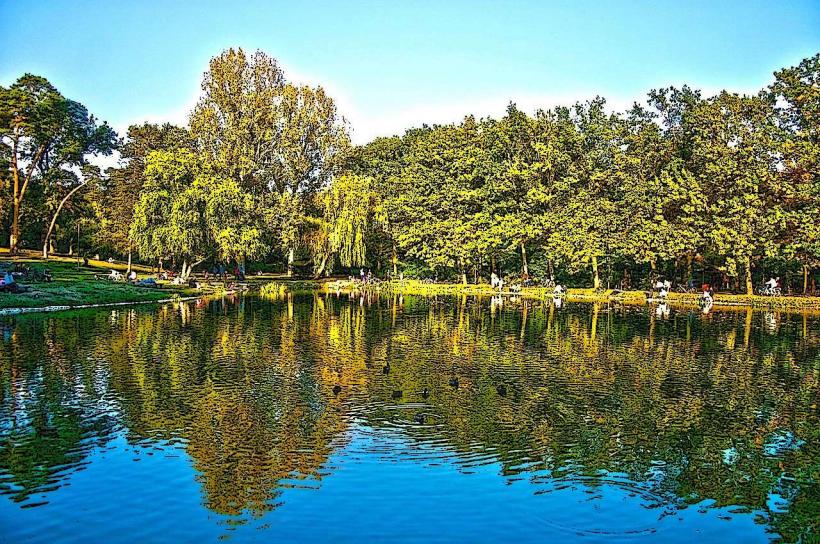Information
Landmark: Pásti Street Orthodox SynagogueCity: Debrecen
Country: Hungary
Continent: Europe
Pásti Street Orthodox Synagogue, Debrecen, Hungary, Europe
The Pásti Street Orthodox Synagogue (Hungarian: Pásti úti Ortodox Zsinagóga) is a notable Jewish house of worship located in the city of Pécs, Hungary. The synagogue represents an important part of the city's Jewish heritage and is a significant religious and cultural site for the local Jewish community.
Overview
- Location: The Pásti Street Orthodox Synagogue is situated on Pásti Street in the city of Pécs, one of Hungary’s oldest cities, known for its rich history and multicultural heritage. The synagogue serves as a place of worship for the local Jewish community, primarily following the Orthodox tradition.
- Architectural Style: The synagogue is built in a Neoclassical style, which was commonly used for synagogues constructed in Hungary in the late 19th and early 20th centuries. The building features the traditional design elements of an Orthodox synagogue, emphasizing simplicity and functionality in its structure.
History
- Establishment: The Pásti Street Orthodox Synagogue was constructed in 1928, during a period when the Jewish population in Pécs was flourishing. It was built to serve the Orthodox Jewish community, which follows a more traditional interpretation of Jewish law and practices. At the time, Pécs had a sizable Jewish population, and the synagogue provided a space for Orthodox worship and community life.
- World War II: Like many Jewish communities across Europe, the Jewish community of Pécs was severely affected by the events of World War II. The Holocaust decimated Hungary's Jewish population, and many Jewish institutions, including synagogues, were damaged or closed during the war. Despite these hardships, the synagogue in Pécs has survived and continues to serve as an important cultural and religious center for the Jewish community.
- Post-War and Modern Times: After the war, the synagogue was restored and continues to operate as a place of Orthodox worship. It is an important symbol of the Jewish heritage in Pécs and serves as a spiritual and cultural hub for both religious services and community events.
Architectural Features
Exterior Design: The synagogue’s exterior features clean lines and a minimalist design typical of Neoclassical synagogues. It includes a simple facade, with a large central entrance and decorative columns that give the building a stately appearance. The structure is designed to blend into the urban environment while maintaining its distinct religious identity.
Interior Design:
- Ark (Aron Kodesh): The central feature inside the synagogue is the ark (Aron Kodesh), where the Torah scrolls are stored. The ark is often richly decorated with religious symbols and Hebrew inscriptions.
- Bimah: The bimah, or raised platform, is located in the center of the prayer hall, from which the Torah is read. This is a typical feature in synagogues, symbolizing the importance of the Torah in Jewish worship.
- Seating Arrangement: The seating in the synagogue reflects Orthodox Jewish practices, with separate seating for men and women. Traditionally, men sit in the main area of the prayer hall, while women are typically seated in a balcony or separate section.
Design Elements: The interior of the synagogue features a blend of simple, functional design with religious significance. The prayer hall is spacious, allowing for communal prayers, especially during important Jewish holidays. The walls and ceiling are often decorated with Hebrew inscriptions, and the overall decor focuses on creating an atmosphere conducive to worship and reflection.
Religious and Cultural Significance
Orthodox Worship: The Pásti Street Orthodox Synagogue is primarily used for Orthodox Jewish services, which adhere to traditional Jewish law (Halakha). Services are conducted in Hebrew, and the synagogue follows the Orthodox customs of prayer, including the use of men’s and women’s separate seating and a traditional format for religious rituals.
Community Hub: Beyond its role as a place of worship, the synagogue serves as a cultural center for the Jewish community in Pécs. It hosts religious celebrations, such as Shabbat services, Rosh Hashanah, Yom Kippur, and Passover services, as well as cultural events, lectures, and educational programs related to Jewish heritage and traditions.
Heritage Preservation: The synagogue is an important part of preserving the Jewish heritage in Pécs, which dates back several centuries. The city’s Jewish community has faced significant challenges, especially during the Holocaust, but the synagogue remains a symbol of resilience and continuity. It is also a point of interest for visitors interested in learning about Jewish history and culture in Hungary.
Visiting the Pásti Street Orthodox Synagogue
- Accessibility: The Pásti Street Orthodox Synagogue is open to visitors, particularly for religious services and special events. Those wishing to explore the synagogue’s architecture and history may also be able to take guided tours to learn more about its significance within the Jewish community of Pécs.
- Services: Regular prayer services are held, especially during Jewish holidays. Visitors wishing to attend a service are advised to check the synagogue’s schedule or contact the local Jewish community center for more information.
- Cultural Events: The synagogue often hosts cultural and educational events, including exhibitions and lectures on Jewish culture, history, and traditions. It also plays a role in raising awareness about the Jewish heritage in Pécs.
Conclusion
The Pásti Street Orthodox Synagogue is a significant and historic building in Pécs, Hungary, that continues to serve as a place of worship and cultural importance for the Jewish community. Its Neoclassical architecture and Orthodox religious traditions make it a unique site for those interested in Jewish history and culture. As part of the city’s diverse cultural heritage, the synagogue contributes to the rich tapestry of Pécs’s historical landmarks and remains an important symbol of the city’s Jewish legacy.

